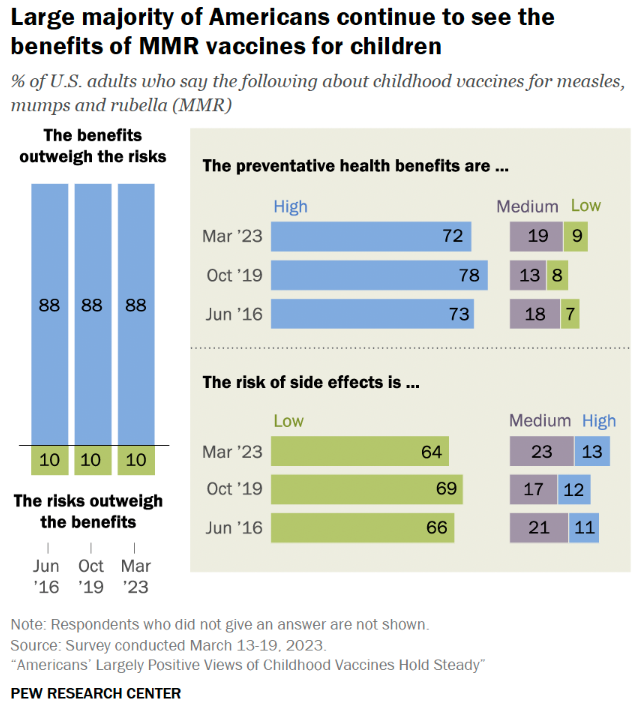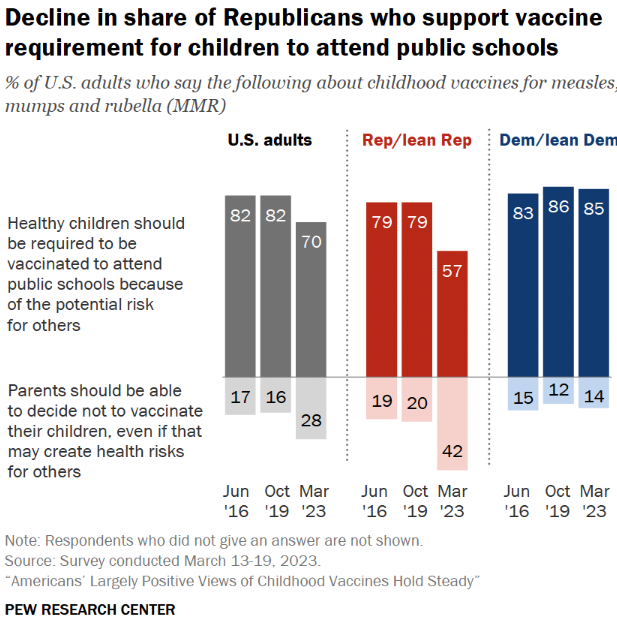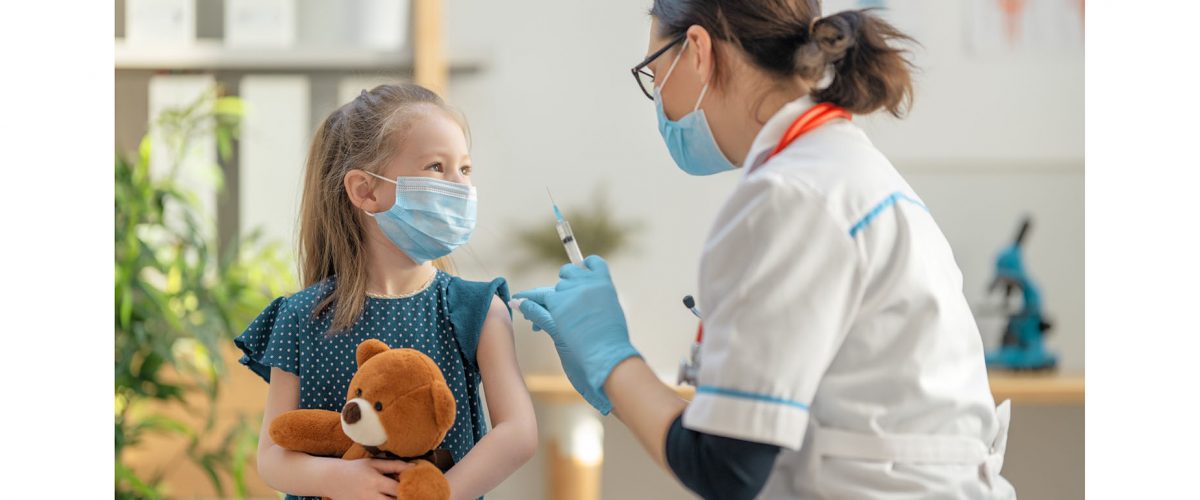More Americans trust childhood immunizations than they do vaccines to protect against coronavirus, according to a new study by Pew Research Center.
“The survey findings highlight the sizable gap between higher public confidence in childhood vaccines and lower ratings of COVID-19 vaccines,” the center reported May 16. “Fewer than half of U.S. adults consider the preventative health benefits of coronavirus vaccines to be high, and a majority see the risk of side effects from them to be at least medium.”
The survey of 10,701 U.S. adults was conducted in March amid ongoing concerns that negative attitudes about coronavirus vaccines could drive down the immunizations of children. The Centers for Disease Control and Prevention found inoculations of kindergarten students have dropped to 93% since the beginning of the 2020-2021 academic year.

But Pew said support for MMR (measles, mumps and rubella) vaccinations remained high, with 88% of U.S. adults saying the benefits of those treatments outweigh the risks, while just 10% of respondents said the opposite. “The share expressing confidence in the value of MMR vaccines is identical to the share who said this in 2019, before the coronavirus outbreak,” the report noted.
Most adults (72%) said the preventative benefits of childhood vaccines are high, compared to 19% who said medium and 9% who said low. Pew also found 64% of Americans believe the risk of side effects to be low while 23% consider them to be medium and 13% to be high.
But researchers said they may have uncovered evidence that the COVID-19 pandemic changed opinions about requiring vaccines to attend public schools.
“The share who say parents should be able to decide not to vaccinate their children now stands at 28%, up 12 points from four years ago.”
“Seven in 10 Americans now say healthy children should be required to be vaccinated in order to attend public schools. This is a smaller majority than the 82% who supported vaccine requirements for children in 2019 and 2016. The share who say parents should be able to decide not to vaccinate their children now stands at 28%, up 12 points from four years ago.”
Political and religious orientation are strong influencers of attitudes toward MMR mandates for some Americans, Pew added.
 “The decline in support for vaccine requirements for children has been driven by changing views among Republicans: 57% now support requiring children to be vaccinated to attend public schools, down from 79% in 2019. By contrast, there’s been no meaningful change in the large share of Democrats (85%) who support school-based vaccine requirements.”
“The decline in support for vaccine requirements for children has been driven by changing views among Republicans: 57% now support requiring children to be vaccinated to attend public schools, down from 79% in 2019. By contrast, there’s been no meaningful change in the large share of Democrats (85%) who support school-based vaccine requirements.”
Approval also fell noticeably among white evangelical Protestants, Pew said. “In the current survey, 58% say children should be required to be vaccinated to attend public schools, while 40% say parents should be able to decide not to vaccinate their children, even if that may create health risks for others. This represents a sizable shift from 2019, when white evangelicals backed vaccine requirements for public school children by a margin of 77% to 20%.”
The trends among Republicans and white evangelicals reflect attitudes documented throughout the pandemic, researchers said. “Partisans have often been at odds over policy questions in these areas, with Republicans much more likely than Democrats to oppose activity restrictions and vaccine requirements.”
But the survey also disclosed waning support for coronavirus vaccines across the wider population: “On balance, more Americans say the benefits of COVID-19 vaccines outweigh the risks (62% to 36%). But this rating falls far short of the 88% who say the same about childhood vaccines for measles, mumps and rubella.”
 Opinions tended to vary to a wider degree when health benefits were weighed against the risk of side effects, Pew said. “Fewer than half of U.S. adults believe the preventative health benefits of COVID-19 vaccines are high (45%). About seven in 10 say this about childhood MMR vaccines (72%). Americans also see a greater risk of side effects attached to COVID-19 vaccines: A majority (58%) describe the risk from coronavirus vaccines as medium or high.”
Opinions tended to vary to a wider degree when health benefits were weighed against the risk of side effects, Pew said. “Fewer than half of U.S. adults believe the preventative health benefits of COVID-19 vaccines are high (45%). About seven in 10 say this about childhood MMR vaccines (72%). Americans also see a greater risk of side effects attached to COVID-19 vaccines: A majority (58%) describe the risk from coronavirus vaccines as medium or high.”
Political leanings shape attitudes toward coronavirus vaccines.
“Seven in 10 adults who are not vaccinated identify as Republican or lean toward the Republican Party, while two in 10 identify with or lean toward the Democratic Party (the remainder do not lean to either party or did not offer a response),” the survey said. “In contrast, Americans who are fully vaccinated and recently boosted against COVID-19 are much more likely to identify with or lean toward the Democratic Party (68%) than the GOP (27%). And 45% of this group has at least a four-year college degree, while 55% have some college or less education.”


